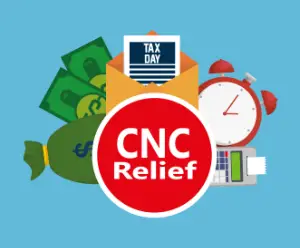
Understanding the IRS Substitute for Return
Click to ask Mike Ask Mike The Internal Revenue Service (IRS) Substitute for Return (SFR) is a term many taxpayers

Taxpayers often find themselves in challenging financial situations that make it difficult or impossible to meet their tax obligations to the Internal Revenue Service (IRS). In such cases, the IRS offers a temporary solution known as “Currently Not Collectible” or CNC status. This status allows eligible taxpayers a reprieve from immediate collection efforts while they address their financial hardships. In this article, we will delve into the concept of Currently Not Collectible, its eligibility criteria, and how to apply for it.
What is Currently Not Collectible (CNC)?
Currently Not Collectible (CNC) is a status granted by the IRS to taxpayers who are experiencing financial hardship and cannot afford to pay their outstanding tax debts. When a taxpayer is classified as CNC, the IRS temporarily suspends its collection activities, which may include wage garnishments, bank levies, and asset seizures. While in CNC status, the IRS will not actively pursue the collection of the owed taxes.
Eligibility for Currently Not Collectible
To qualify for CNC status, taxpayers must meet specific criteria set by the IRS. While these criteria may evolve over time, as of my knowledge cutoff date in January 2022, the common eligibility requirements for CNC status are:
Applying for Currently Not Collectible
If you believe you qualify for CNC status, here are the steps to apply for it:
Benefits of Currently Not Collectible
Obtaining Currently Not Collectible status can provide several benefits to taxpayers facing financial hardship, including:
Currently Not Collectible (CNC) status is a valuable option for taxpayers facing financial hardship and unable to meet their tax obligations to the IRS. By providing temporary relief from collection activities and protecting essential assets, CNC status can be a lifeline for individuals and businesses facing tough economic circumstances.
However, it’s crucial to understand that CNC status is not a permanent solution, and the IRS will periodically review your financial situation. It’s essential to stay current with tax filings and seek professional guidance if you’re unsure about your eligibility or the application process.
Keep in mind that tax laws and regulations may change over time, so it’s advisable to consult the IRS website or a tax professional for the most up-to-date information and guidance on Currently Not Collectible status.
You can now ask our AI assistant any questions you have about your tax debt or any tax-related issues. Whether you’re unsure about payment plans, need clarification on penalties, or want information on how to resolve your tax situation. Our AI is ready to assist you with all your tax-related concerns.

By interacting with our AI assistance, you agree to our terms & conditions. Enjoy our AI Tax Assistant responsibly.
Ask me any questions...
Related Posts

Click to ask Mike Ask Mike The Internal Revenue Service (IRS) Substitute for Return (SFR) is a term many taxpayers

Click to ask Mike Ask Mike The Internal Revenue Service (IRS) Substitute for Return (SFR) is a term many taxpayers

Click to ask Mike Ask Mike The Internal Revenue Service typically operates within a 10-year window, commencing from the

Click to ask Mike Ask Mike The Internal Revenue Service (IRS) operates within specific timeframes dictated by statutes of limitations

Click to ask Mike Ask Mike understanding the ins and outs of the 10-year statute of limitations (SOL) is essential.
Recent Posts

Click to ask Mike Ask Mike The Internal Revenue Service (IRS) Substitute for Return (SFR) is a term many taxpayers

Click to ask Mike Ask Mike The Internal Revenue Service (IRS) Substitute for Return (SFR) is a term many taxpayers

Click to ask Mike Ask Mike The Internal Revenue Service typically operates within a 10-year window, commencing from the

Click to ask Mike Ask Mike The Internal Revenue Service (IRS) operates within specific timeframes dictated by statutes of limitations

Click to ask Mike Ask Mike understanding the ins and outs of the 10-year statute of limitations (SOL) is essential.
Disclaimer: This is educational content, not legal, accounting, or tax advice.
This is a tax debt resource website, not to be used in lieu of a tax attorney or for legal advice. All information, Ai chat responses, articles, materials, and content are intended to inform users on a variety of tax topics. In no way is it intended to be construed as accounting, legal, tax, other services or advice. This site is not intended to be used to avoid tax penalties or tax debt that may be imposed by law. Terms and Conditions. Your use of this site constitutes acceptance of the following terms and conditions.
This is a tax debt resource website, not to be used in lieu of a tax attorney or for legal advice. All information, Ai chat responses, articles, materials, and content are intended to inform users on a variety of tax topics. In no way is it intended to be construed as accounting, legal, tax, other services or advice. This site is not intended to be used to avoid tax penalties or tax debt that may be imposed by law. Terms and Conditions. Your use of this site constitutes acceptance of the following terms and conditions.
© 2023 · Tax Debt Monster, Inc. All rights reserved

For all Tax Professionals that would like to partner up with us. By partnering with us, you’ll help us connect and make a positive impact in the tax community. Partner up with us and receive a complimentary Ai Tax Sidekick to help support your clients at no cost! Click here if you’re interested in our Partner-Up program

By interacting with our AI assistance, you agree to our terms & conditions. Enjoy our AI Tax Assistant responsibly.
How may I help you with your tax issue?